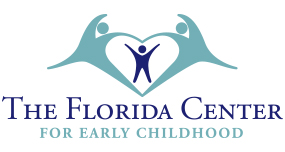Fetal Alcohol Spectrum Disorder: a Prevalent and Invisible Disability
by Sandy Chase, guest blogger

Knowing about FASD—prevalent and invisible—is the key to eradicating it. The Florida Center for Early Childhood is commemorating its 14th year as the only statewide FASD clinic to diagnose, provide interventions, and work towards preventing FASD.
A double-edge sword, alcohol can welcome in a New Year or damage a baby in utero if his/her mother drinks during pregnancy. There is no known safe amount of alcohol or specific time during the pregnancy when there isn’t a risk of it negatively affecting the baby’s development.
According to experts, alcohol continues to be the most devastating drug to the fetus—often resulting in long-term developmental disabilities.
“Identifying individuals with FASD and providing the right intervention saves lives,” said Kathryn Shea, President and CEO of the Florida Center for Early Childhood.
FASD is more common than autism spectrum disorder (ASD), as one in 20 individuals have FASD. However, in general, the number of people diagnosed or receiving appropriate services is minimal.
“Most children aren’t diagnosed or they’re misdiagnosed as having ADHD (Attention Deficit/Hyperactivity Disorder), ODD (Oppositional Defiant Disorder), hostile behavior), or autism,” said Tamra Cajo, the Florida Center’s Diagnostic FASD Clinic Director.
Tamra, a bilingual, licensed, clinical social worker with over 15 years of experience, works with a team of evaluation experts—a licensed neuropsychologist, occupational therapists, and speech/language pathologists as well as a mental health clinician—to diagnose individuals with FASD, improving their lives and providing their families with support and treatment options.
Those assessed in the clinic range in age, from babies through adults,” said Tamra. “Many individuals with FASD go through their entire lives not understanding the reasons they feel or behave the way they do. It’s a relief when they receive the diagnosis, because they finally have some answers.”
FASD Includes Many Disorders
FASD, an umbrella term used to describe a range of effects afflicting an individual prenatally exposed to alcohol include physical, behavioral, mental, and/or learning disabilities—intensifying as the child matures—with possible lifelong implications for children and families.
“The earlier the diagnosis, the better,” said Tamra. “That way, clients receive the appropriate services early on—resulting in a better chance of living independently and functioning well in society.”
For Tamra, the biggest challenge is to convince others that FASD behaviors aren’t manipulative or purposeful.
“Those afflicted by FASD can’t change their behaviors. It’s up to informed adults to make accommodations so these individuals can succeed.”
Left unchecked, untreated, and unsupported, individuals with these and other lifelong challenges may end up institutionalized or imprisoned. Symptoms include trouble paying attention and learning in school, difficulty with abstract thinking and the inability to get along with others and control behavior.
The clinic, which is free to all Florida residents who have confirmed exposure to alcohol in utero, provides answers and support to those dealing with the disease along with expertly-trained intervention specialists that provide occupational therapy, speech/language therapy and mental health services to help with individuals suffering from FASD. Stick with confirmed alcohol exposure – we really limit the suspicion of alcohol in utero.
“We have a Facebook support group and a weekly support group here at the Florida Center,” Tamra said. “Parents say that they no longer feel alone—having met other families.”
September is set aside to publicize FASD—a paramount endeavor. But that’s only one month. The Florida Center focuses on spreading awareness year-round. Our hope is that one day FASD will just be a series of capital letters because women around the globe will understand the ramifications of alcohol consumption during pregnancy and choose to refrain from drinking while pregnant and while trying to conceive.


